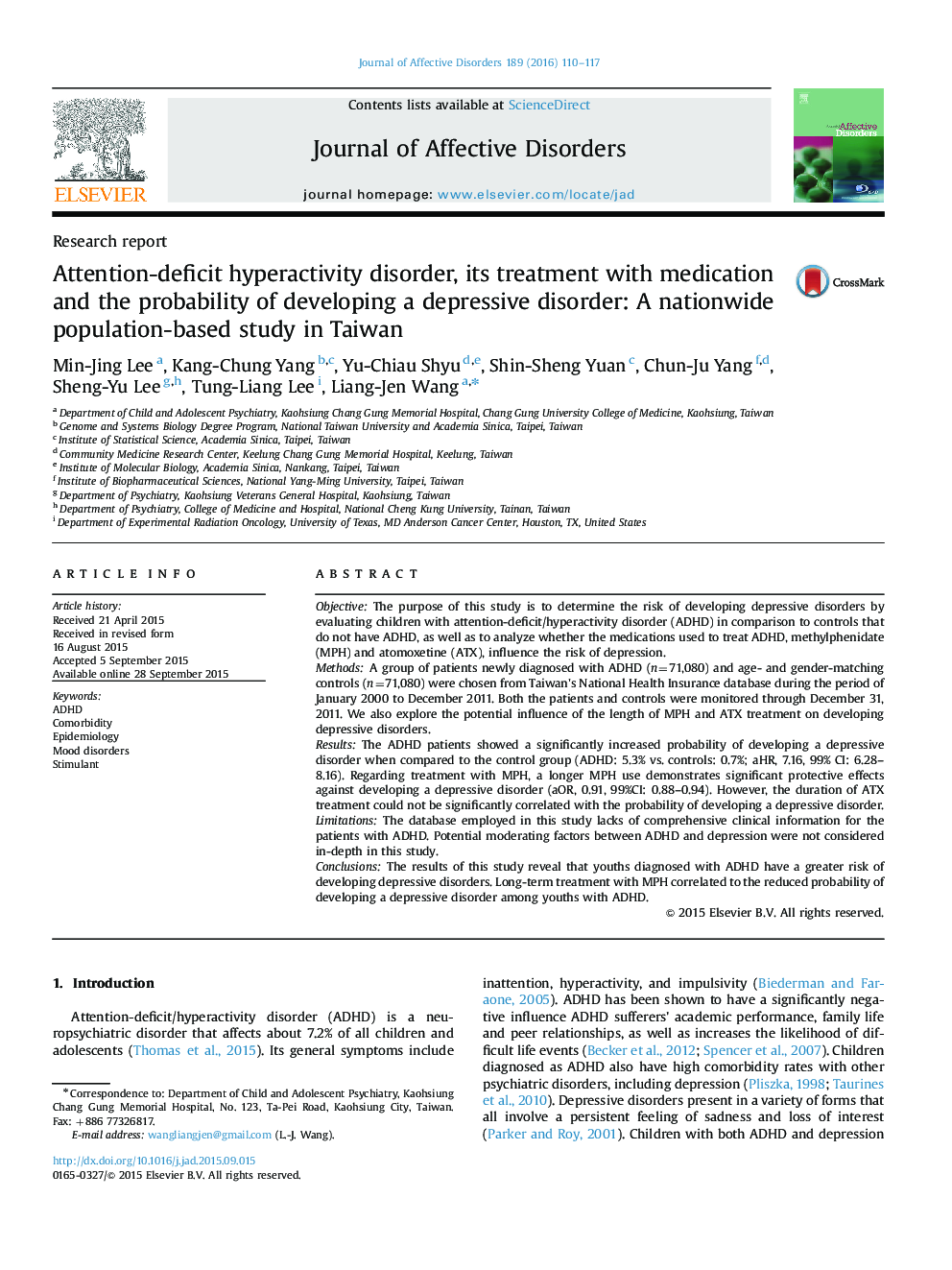| Article ID | Journal | Published Year | Pages | File Type |
|---|---|---|---|---|
| 6230848 | Journal of Affective Disorders | 2016 | 8 Pages |
â¢This study assessed the relationship between ADHD, its pharmacotherapy, and depression.â¢Patients with ADHD had higher rate of developing depression than the study's control subjects.â¢Taking methylphenidate longer was linked to a lower probability of developing depression.â¢Taking atomoxetine was not correlated with the probability of developing depression.
ObjectiveThe purpose of this study is to determine the risk of developing depressive disorders by evaluating children with attention-deficit/hyperactivity disorder (ADHD) in comparison to controls that do not have ADHD, as well as to analyze whether the medications used to treat ADHD, methylphenidate (MPH) and atomoxetine (ATX), influence the risk of depression.MethodsA group of patients newly diagnosed with ADHD (n=71,080) and age- and gender-matching controls (n=71,080) were chosen from Taiwan's National Health Insurance database during the period of January 2000 to December 2011. Both the patients and controls were monitored through December 31, 2011. We also explore the potential influence of the length of MPH and ATX treatment on developing depressive disorders.ResultsThe ADHD patients showed a significantly increased probability of developing a depressive disorder when compared to the control group (ADHD: 5.3% vs. controls: 0.7%; aHR, 7.16, 99% CI: 6.28-8.16). Regarding treatment with MPH, a longer MPH use demonstrates significant protective effects against developing a depressive disorder (aOR, 0.91, 99%CI: 0.88-0.94). However, the duration of ATX treatment could not be significantly correlated with the probability of developing a depressive disorder.LimitationsThe database employed in this study lacks of comprehensive clinical information for the patients with ADHD. Potential moderating factors between ADHD and depression were not considered in-depth in this study.ConclusionsThe results of this study reveal that youths diagnosed with ADHD have a greater risk of developing depressive disorders. Long-term treatment with MPH correlated to the reduced probability of developing a depressive disorder among youths with ADHD.
